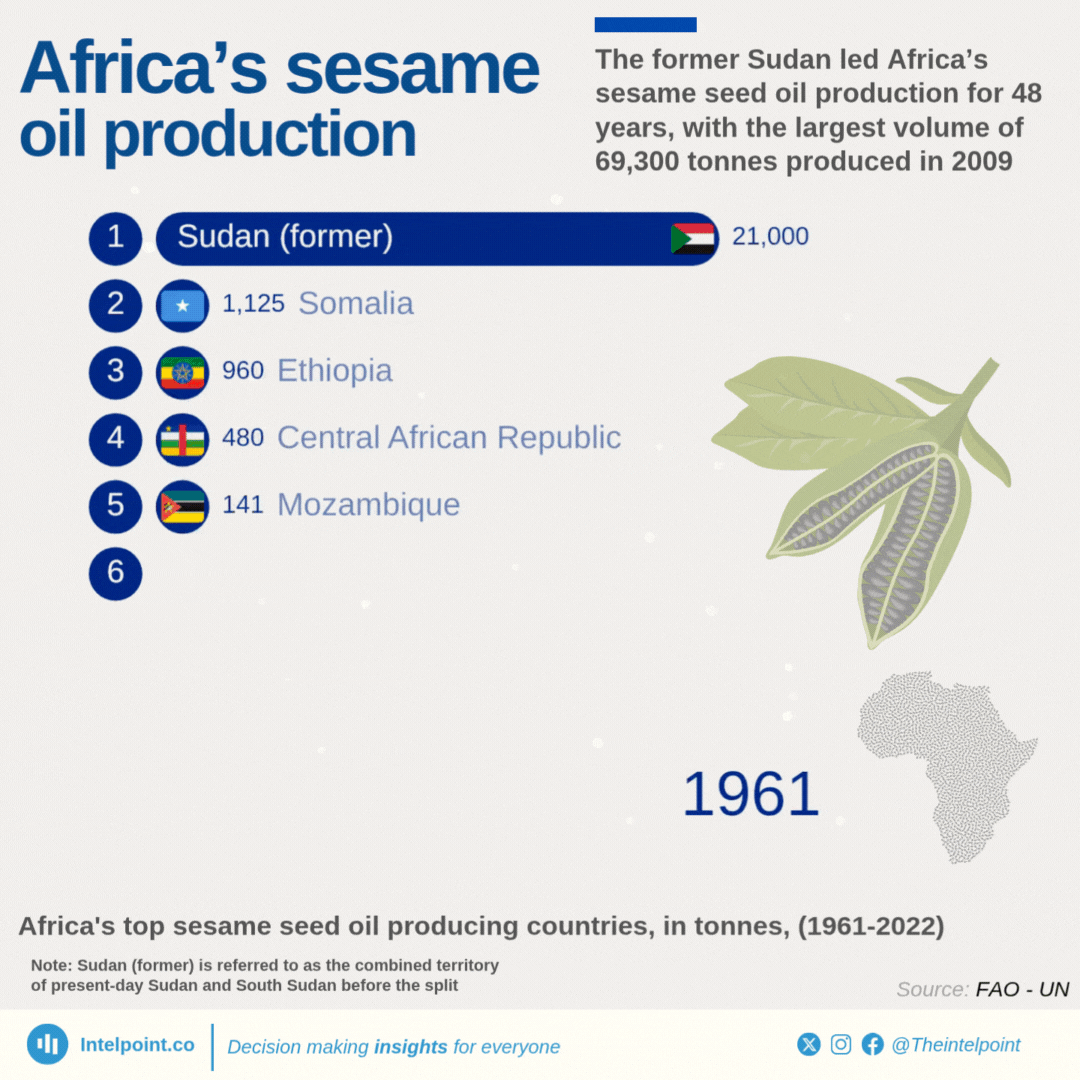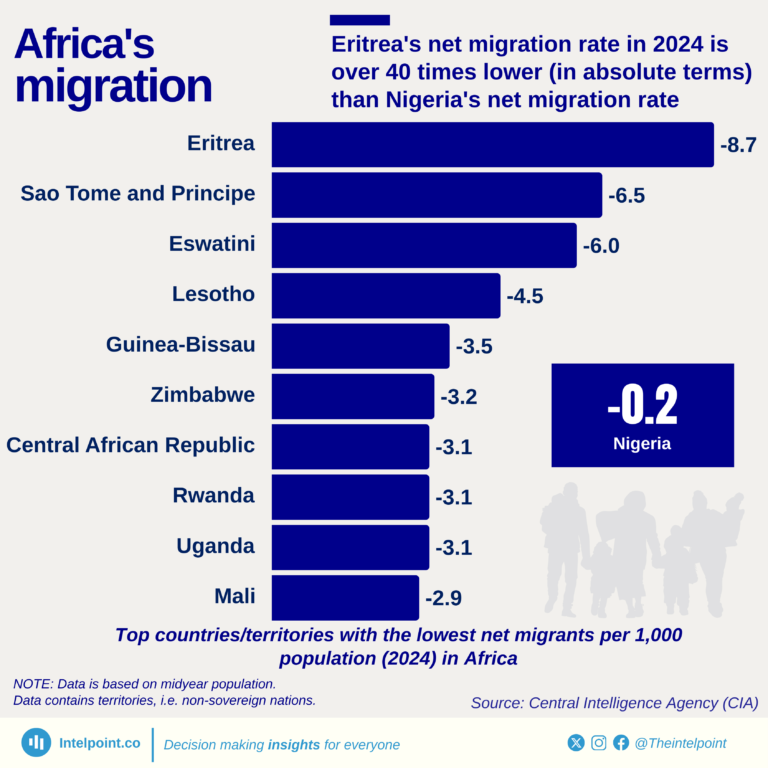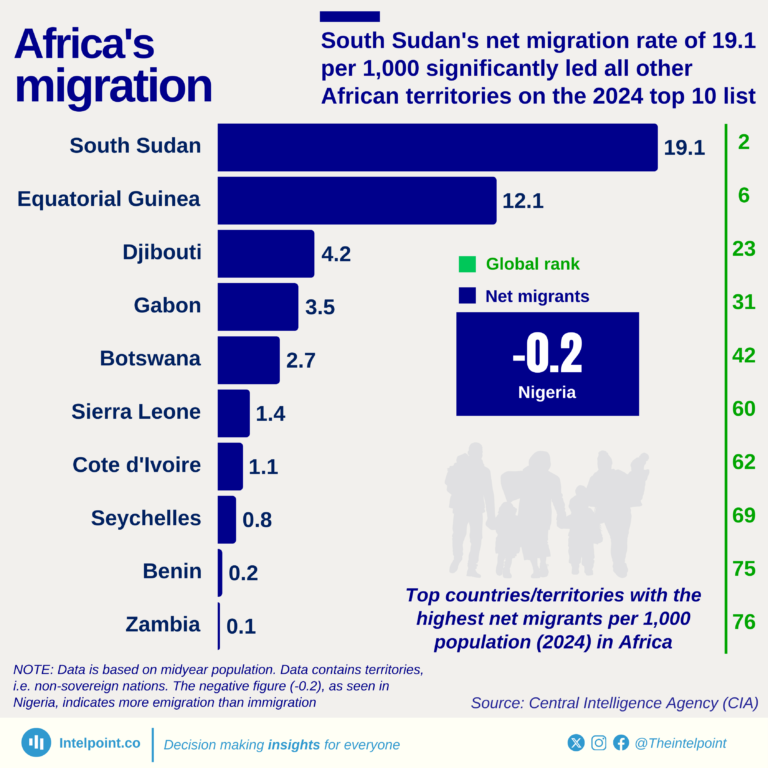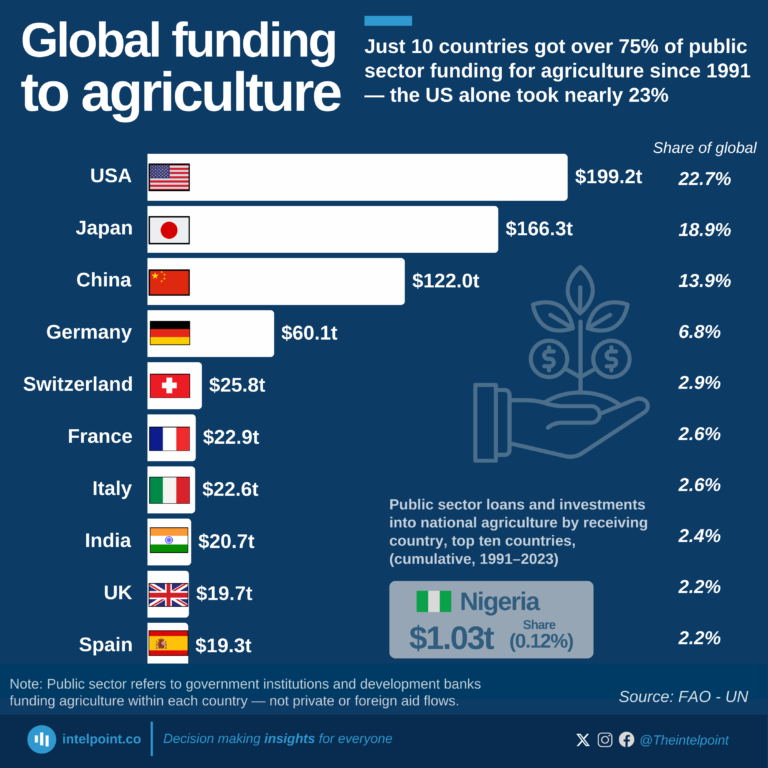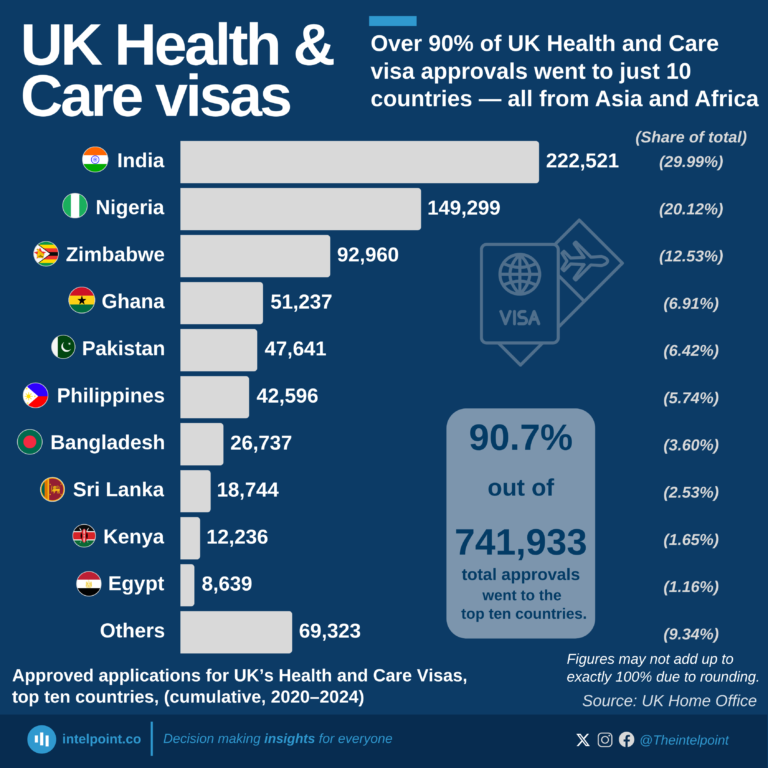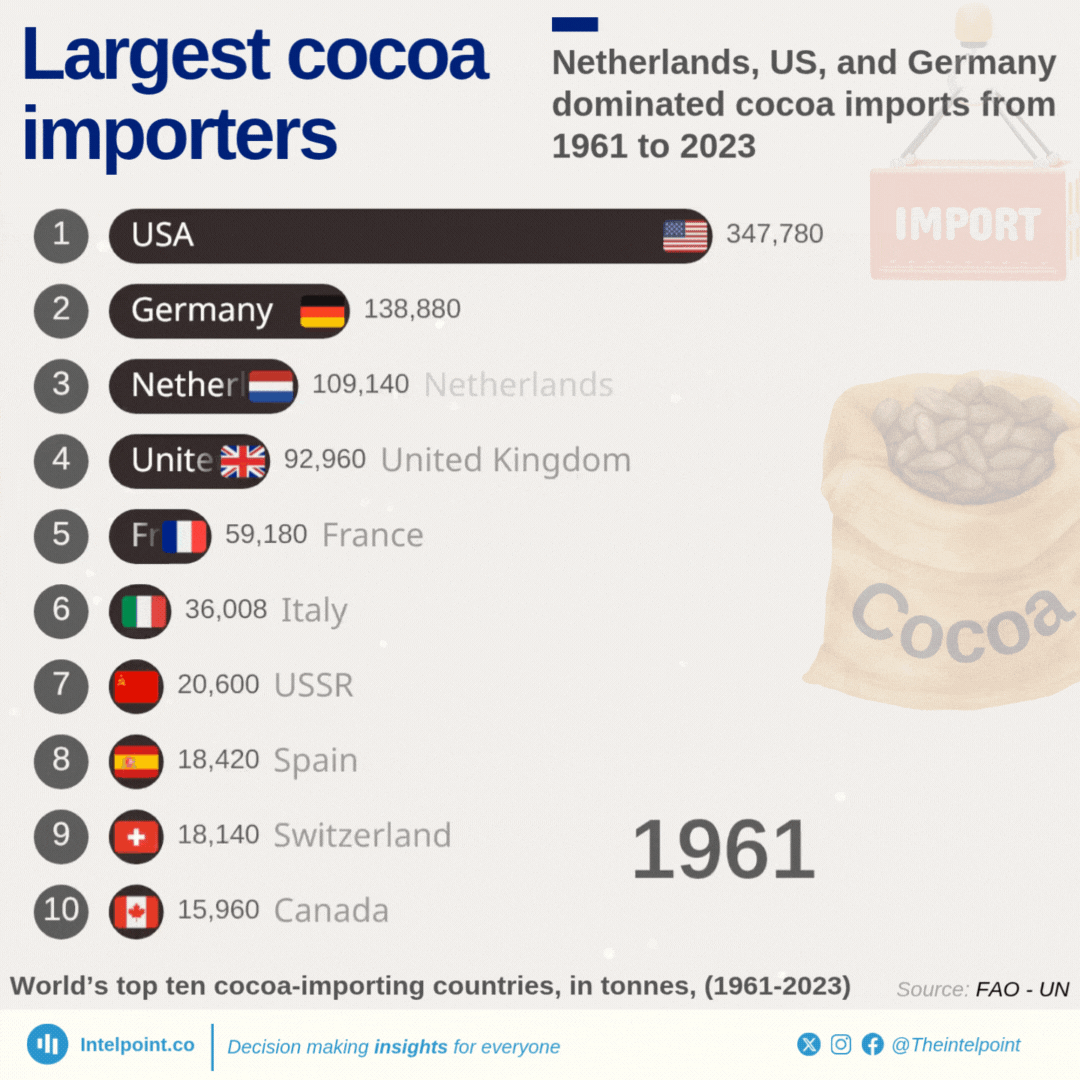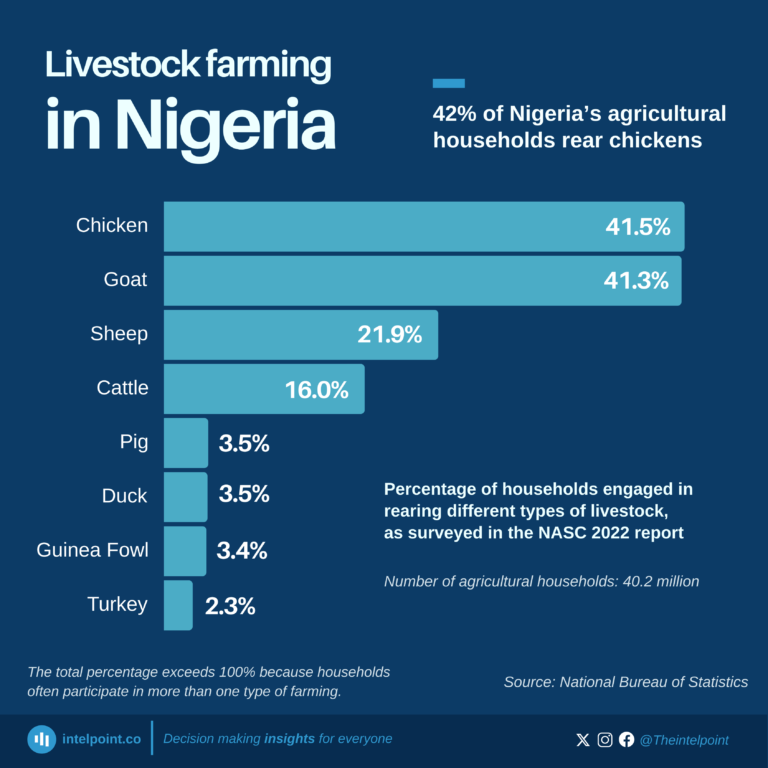
Chickens and goats are Nigeria's most-reared livestock.
Per the National Bureau of Statistics' survey, of the estimated 40.2 million agricultural households in Nigeria, 41.5% rear chickens and 41.3% rear goats.
These numbers show that a significant portion of Nigeria's agricultural households focus on these two animals.
Here are the most-reared livestock in Nigeria's agricultural households.
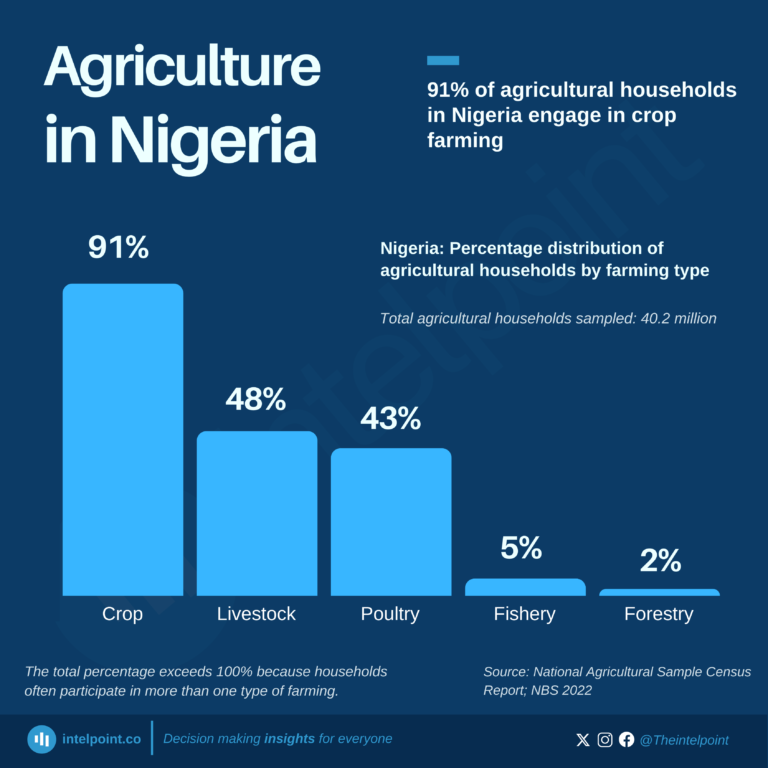
Nigeria's agricultural landscape is diverse, with households engaging in various farming activities.
Crop farming dominates, but livestock rearing and poultry farming are also significant. Each sector plays a crucial role in the economy, with crop farming driving food production and livestock providing protein.
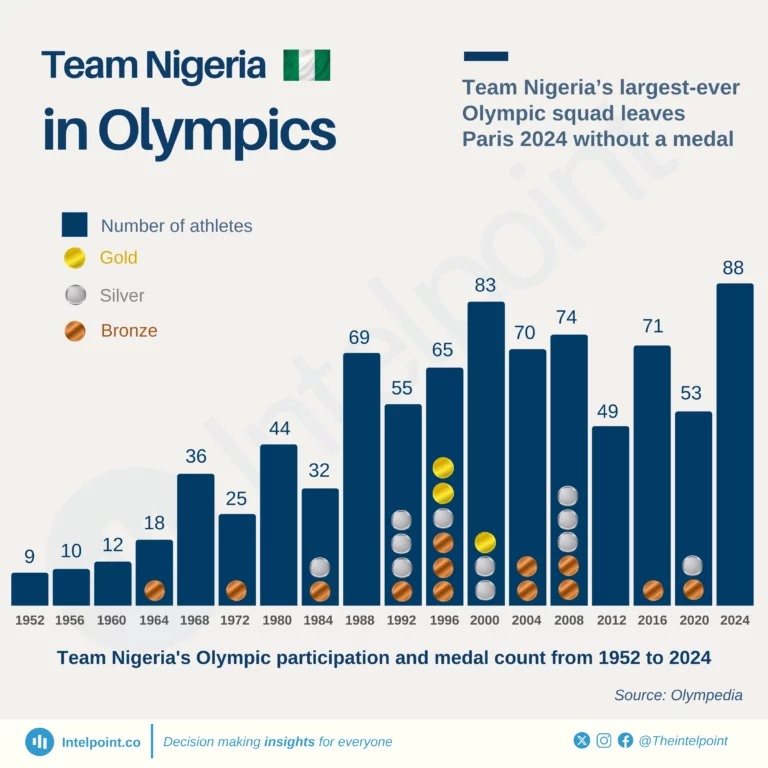
Team Nigeria made history with its largest Olympic squad ever at Paris 2024, featuring 88 athletes.
Despite the high participation, the team left without a medal, sparking discussions on the effectiveness of sports programmes and athlete support.
Peak performance was in 1996, but recent Games show a trend towards greater participation

MTN Nigeria has dominated the country's telecommunications market over the years, accounting for the largest market share. All four operators, apart from 9mobile, recorded a significant increase in their subscriber base between May 2014 and March 2024.
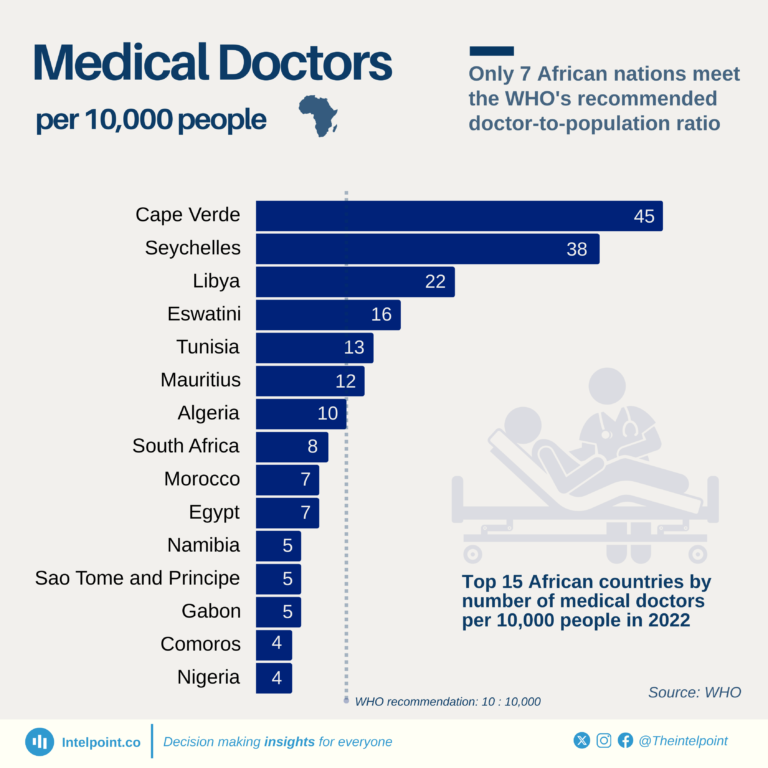
As of 2022, only seven African countries met the WHO's recommended doctor-to-population ratio of 10 doctors per 10,000 people.
Cape Verde, Seychelles, Libya, Eswatini, Tunisia, Mauritius, and Algeria are leading the way in healthcare accessibility in Africa. However, the continent still averages only 2.6 doctors per 10,000 people.
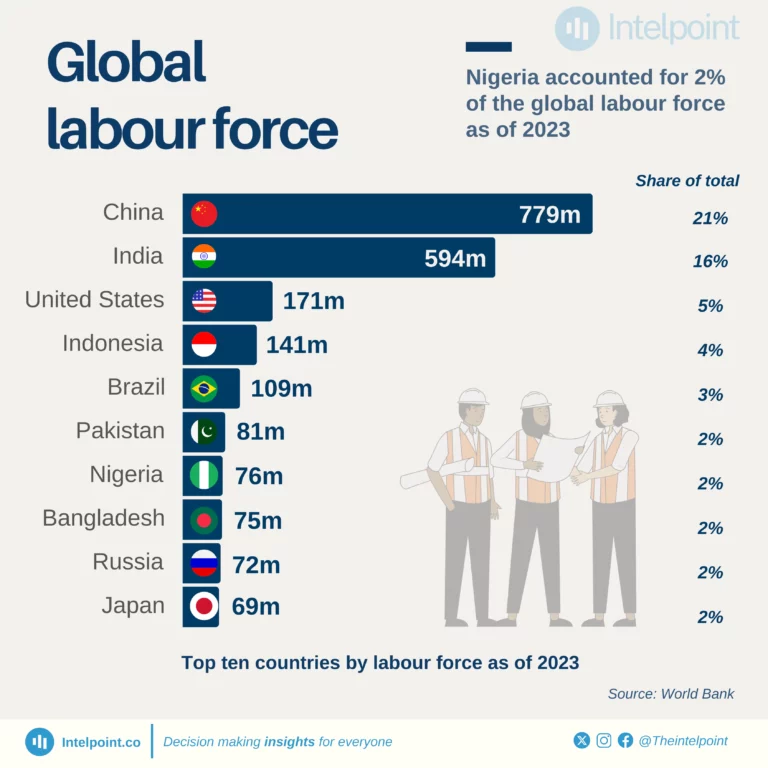
As of 2023, the global labour force has expanded to an estimated 3.63 billion, driven by population booms in key regions.
China and India lead with a combined 1.37 billion people 15+ active in the workforce.
Nigeria ranks 7th with 76 million, following the US, Indonesia, Brazil, and Pakistan.
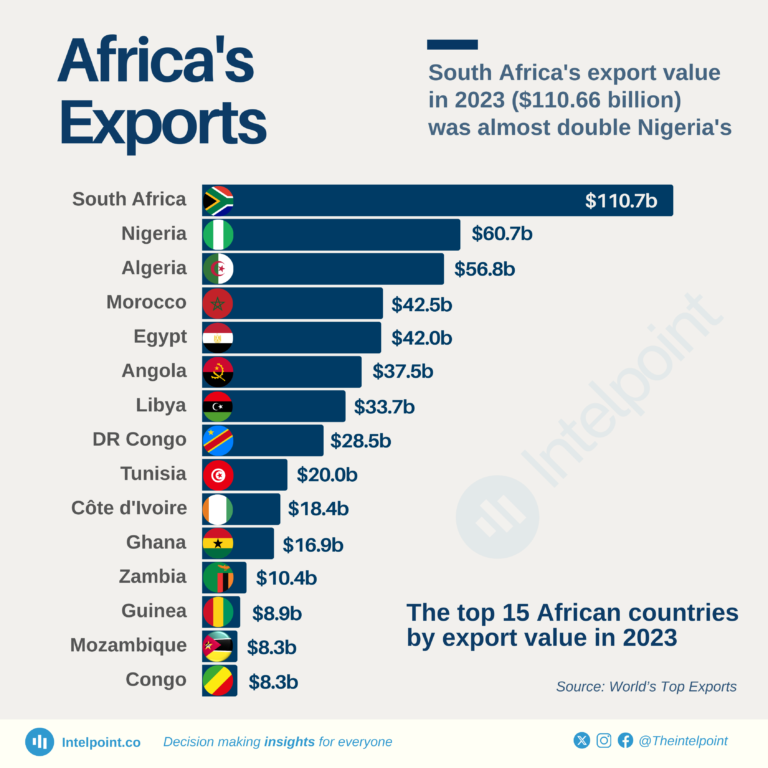
In 2023, South Africa led Africa's exports with a value of $110.7 billion, nearly double Nigeria's $60.7 billion. Key exports include gems, vehicles, and mineral fuels.
The top 15 African exporters contribute 84% to the continent's trade, with South Africa, Nigeria, Algeria, Morocco, and Egypt leading with a combined 52%.

The cumulative number of asylum applications to the UK has exceeded one million, with Iran, Afghanistan, Iraq, Pakistan, and Albania being major contributors.
African countries such as Eritrea, Somalia, Zimbabwe, the DR Congo, and Nigeria have also been in the top ten.
These are the top ten nationalities in the past 23 years.
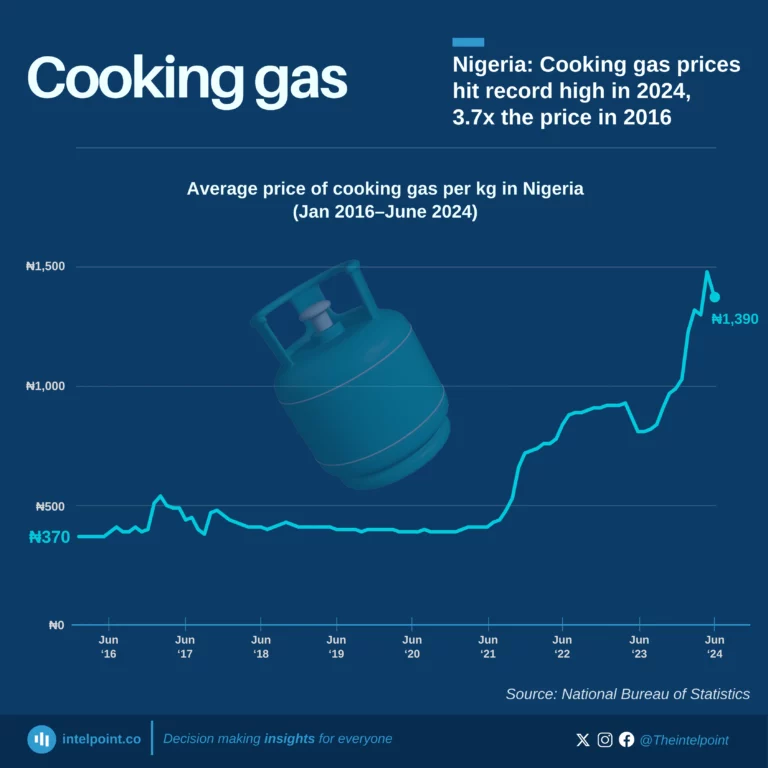
The average price of cooking gas in Nigeria has increased significantly, from ₦370 per kg in early 2016 to ₦1,390 per kg in June 2024.
After prices peaked at nearly ₦1,500 in May 2024, they fell by 6.1% in June.
The contributing factors to the increase include global energy fluctuations, naira depreciation, supply chain disruptions, and changes in domestic policies.
Here are the average prices of cooking gas in Nigeria since 2016.
